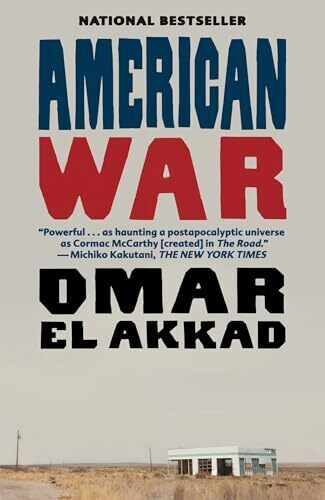
The good
-
A deeply fascinating (and depressingly plausible) central premise: a second civil war in the US, again pitting the north versus the south—the blue versus the red—but this time, over fossil fuels.
-
Interesting characters who feel fully thought out.
-
Decent writing.
The not so good
This book reminds me of The Man in the High Castle in that it has an amazing premise, but it doesn’t do anything interesting with it. The book primarily focuses on a single character, Sarat Chestnut, and her dark & depressing journey through this second US civil war. That’s fine, except what the book doesn’t focus on is all the interesting issues that would come up in a second US civil war! Just a few examples:
-
In this story, climate change seems to have devastated the country, with large parts of the US underwater, so you think it would be a central point of discussion in the story, and a key point of debate between characters… But all you get is a handful of mentions of it, and that’s it.
-
Similarly, fossil fuels seem to be the key contentious issue that leads to the war, but none of the characters really talk about it: there are no rousing speeches, no discussion of the pros and cons, no debates of any kind. I mean, if you’ve ever watched TV in the US (e.g., Fox News vs CNN), or browsed the web, there are endless heated debates over this stuff already… But in the story, nothing.
-
The book talks about the “blues” and the “reds,” but it’s a surface level treatment, as if the only difference is the color of the uniforms the armies wear. The book shows the two sides hate each other, but never dives into any of the issues that divide the south and the north: e.g., no real discussion of poverty, religion, nationalism, racism, sexism, gun ownership, etc. How do you write a book about a second US civil war and not have even a single debate between characters on at least one of these topics?
At best, all of this fertile, interesting content is in the background; in many cases, it’s not mentioned at all. As a result, the book feels… hollow. And disconnected from its intriguing premise. Honestly, Sarat’s journey could’ve been in any civil war, in any other time or place, and you wouldn’t be able to tell. And that, to me, feels like a huge miss.
